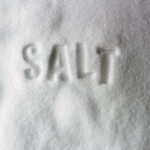Does reducing salt intake lower blood pressure?
This Cochrane review summarizes the evidence for dietary salt reduction.
First, the details.
- 20 studies in people with elevated blood pressure and 11 studies in individuals with normal blood pressure were included.
And, the results.
- There was a significant relationship between the reduction in urinary sodium and the reduction in blood pressure.
- In people with elevated blood pressure the reduction in urinary sodium was 78 mmol/24 hours (4.6 grams/day of salt).
- The average reduction in blood pressure was -5 mmHg for systolic and a little less than -3 mmHg for diastolic pressure.
- In people with normal blood pressure the reduction in urinary sodium was 74 mmol/24 hours (4.4 grams/day of salt).
- The average reduction in blood pressure was -2 mmHg for systolic and -1 mmHg for diastolic pressure.
The bottom line?
The authors concluded, “A modest reduction in salt intake for a duration of 4 or more weeks has a significant and, from a population viewpoint, important effect on blood pressure in both individuals with normal and elevated blood pressure.”
The researchers believe these results support other evidence suggesting that a modest and long-term reduction in salt intake could reduce the risk strokes, heart attacks, and heart failure.
Sodium is a component of salt; table salt is 40% sodium and 60% chloride. On average, American men consume between 3,100 and 4,700 mg of sodium per day, while women consume between 2,300 and 3,100 mg. The difference is due to their lower calorie intake, not because of restricting sodium.
A good review of practical information on sodium (salt) in the diet can be found here.
7/8/11 22:30 JR
